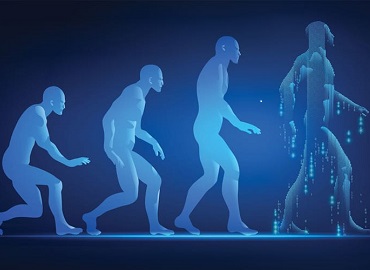
Evolution of AI in the Next 10 Years: Expectations vs. Reality
By Mohsin Ali Rana
Introduction
Artificial intelligence (AI) has become an integral part of our daily lives, revolutionizing various industries such as healthcare, finance, and transportation. With each passing year, AI continues to advance, becoming more sophisticated and powerful. As we look to the future, it raises the question: What can we expect from AI in the next 10 years? This article will explore the current state of AI, recent technological advancements, and the implications and challenges that lie ahead. AI has already made significant strides in areas such as natural language processing, computer vision, and machine learning.
However, there is still much room for growth and improvement. In the next decade, we can expect AI to further enhance our lives by enabling personalized healthcare treatments, autonomous vehicles, and even more accurate predictive analytics. However, along with these advancements come ethical concerns and the need for robust regulations to ensure responsible and unbiased use of AI technology.
Current State of AI
AI has already made remarkable strides in recent years. From voice assistants like Siri and Alexa to autonomous vehicles, AI technologies are becoming increasingly pervasive in our society. Machine learning algorithms have become incredibly efficient at analyzing complex data sets, enabling AI systems to make accurate predictions and decisions. These advancements have revolutionized industries such as healthcare, finance, and transportation, improving efficiency and productivity. However, as AI continues to evolve, it is crucial to address the potential risks and challenges associated with its widespread adoption.
However, there are certain limitations to the current state of AI. Deep learning algorithms, while powerful, require massive amounts of labeled data to train effectively. This can be a significant hurdle, especially in domains where data labeling is challenging or costly. AI systems also lack common sense and the ability to understand context, limiting their capabilities for more nuanced and complex tasks.
Technological Advancements and Breakthroughs
Despite the limitations, AI research and development are advancing at an unprecedented pace. Recent breakthroughs in AI technologies offer a glimpse into future possibilities.
1. Reinforcement Learning:
Reinforcement learning is a branch of machine learning focused on training AI systems to make decisions through trial and error. In the next 10 years, we can expect significant advancements in reinforcement learning algorithms, enabling AI systems to learn complex tasks with limited data.
2. Explainable AI:
Explainable AI is an emerging field that aims to make AI systems more transparent and understandable. As AI becomes more integrated into various sectors, the ability to explain and interpret AI algorithms becomes crucial. Researchers are working on developing techniques that allow AI systems to provide insights into their decision-making processes.
3. Quantum Computing:
Quantum computing holds great promise for advancing AI. The immense processing power of quantum computers can potentially enable AI systems to solve computationally expensive problems much faster. In the next decade, we can anticipate groundbreaking advancements in quantum computing that will push the boundaries of AI capabilities.
4. Robotics:
Robotics is an area that is closely tied to AI. As AI becomes more sophisticated, robots will become more autonomous and adaptable. Advanced robotic systems will be able to perform complex tasks with precision and efficiency, making significant contributions to industries such as manufacturing, healthcare, and exploration.
Implications and Challenges
As AI continues to evolve, it brings forth both exciting opportunities and challenges. Here are some key implications and challenges that we are likely to encounter in the next 10 years:
1. Ethical Considerations:
The ethical implications of AI development and deployment cannot be ignored. As AI systems become more autonomous, issues such as responsibility, bias, and privacy become paramount. Striking a balance between technological advancements and ethical considerations will be imperative.
2. Job Disruption:
With the increasing capabilities of AI systems, there is a concern that automation could lead to job displacement. While some jobs may become obsolete, new roles and industries are also likely to emerge. Preparing the workforce for the changing landscape will be essential.
3. Data Privacy and Security:
The growing reliance on AI systems requires extensive data collection. Protecting the privacy and security of sensitive data will be crucial to maintaining public trust. Stricter regulations and robust cybersecurity measures will need to be implemented.
4. Collaboration and Global Cooperation:
AI development should not be limited to a few countries or corporations. Collaboration and global cooperation are essential to ensuring a balanced and inclusive approach to AI advancement. Sharing knowledge, expertise, and resources will be crucial in addressing common challenges and enhancing AI technologies.
Conclusion
As we look forward to the next 10 years, the evolution of AI holds immense potential to transform various aspects of our lives. From advancements in reinforcement learning and explainable AI to quantum computing and robotics, the future of AI is filled with exciting possibilities. However, there are also ethical considerations, job disruptions, and security challenges that need to be addressed. By navigating these challenges and fostering collaboration, we can strive for a future where AI is harnessed for the betterment of humanity.
https://medium.com/@DigitalSahulat/evolution-of-ai-in-the-next-10-years-expectations-vs-reality-197ddc1ceb89a>

